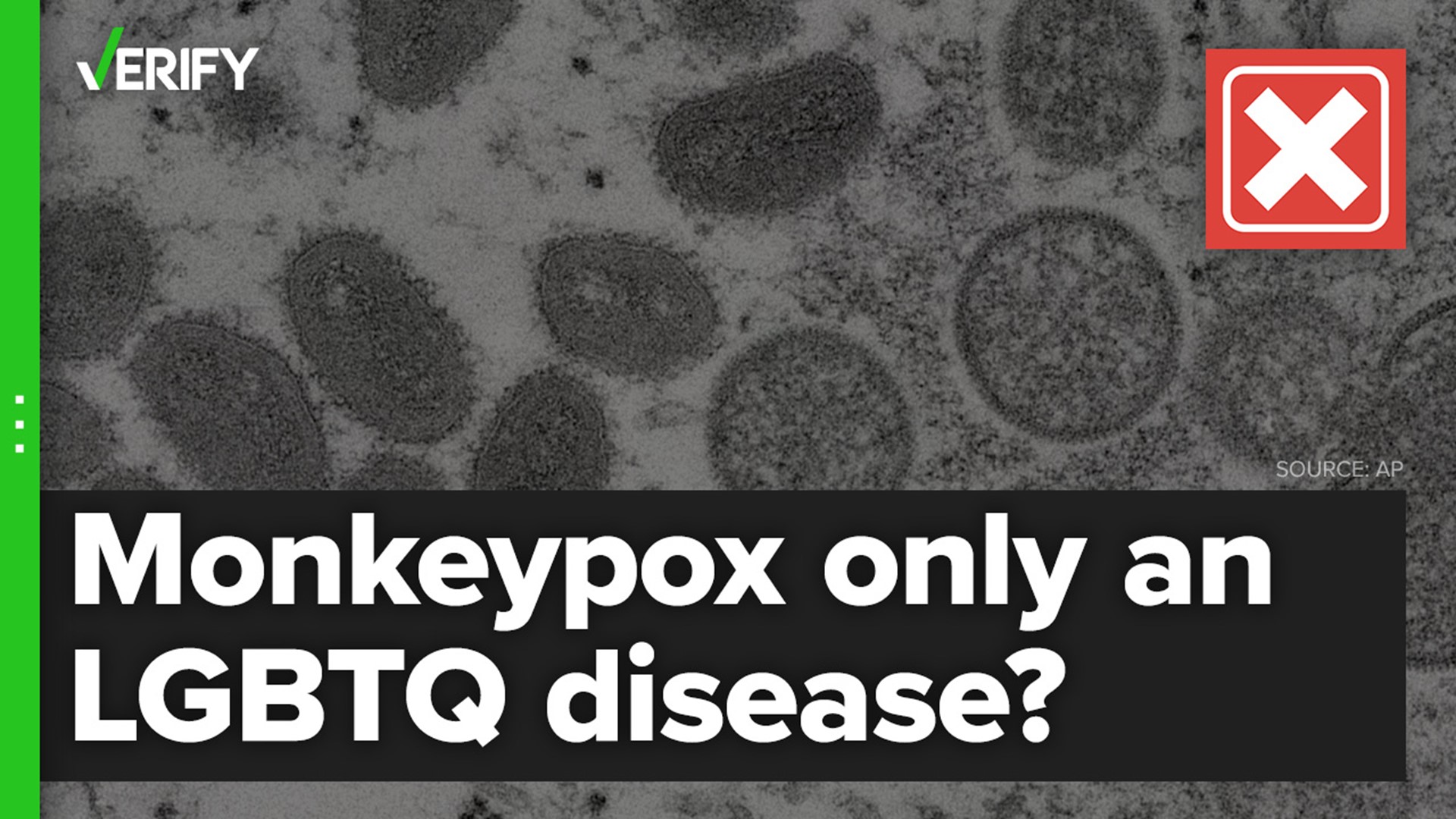WASHINGTON — At least 21 people in eleven states have been infected with monkeypox, CDC officials confirmed Friday.
The Centers for Disease Control and Prevention held a press briefing to discuss the current outbreak, and steps the government was taking to mitigate the virus' spread.
Along with the 11 states in the U.S. reporting cases, the CDC indicated that 28 countries outside of west and central Africa — places where monkeypox is not an endemic, regular disease — have confirmed cases in recent weeks.
The first cases were reported in the U.S. on May 4 in Massachusetts and in New York. In the month since, California, Colorado, Florida, Georgia, Utah, Virginia, and Washington have all reported confirmed cases of monkeypox. Health departments in Illinois and Pennsylvania both reported probable monkeypox cases on Thursday.
Health officials also said Friday they have identified two distinct strains of monkeypox in the U.S. through genetic analysis of the virus, raising the possibility that at least one strain had been circulating in the country undetected for some time before the current outbreak was discovered in May.
A majority of the patients were described as gay or bisexual, or other men who have sex with men. One woman who described only having heterosexual sex also tested positive for monkeypox, and it is unclear exactly how she got the disease.
While the cases in the U.S. have largely been confirmed among LGBTQ+ people, the disease is not exclusive to that group. Anybody who has had close contact with an infected person could contract monkeypox.
CDC officials estimate at least 56 people are at "high risk" of having caught the disease from one of the 13 cases where contact tracing has been done. Another 117 are what the CDC calls "intermediate risk" and 235 additional people have "low risk" from contact with the patients.
Fourteen of the patients who have contracted monkeypox reported out-of-country travel before becoming infected, and U.S. officials believe they got the virus outside the country.
The CDC said three of the patients got it domestically, and clear links between them and the patients in the international category have been established. Another four cases had been reported too recently for the CDC to have determined where they may have been infected.
Monkeypox is an infectious disease that is related to smallpox, and has some symptoms in common — which is why smallpox vaccines are effective at treating it. It usually manifests in stages.
Early symptoms include fever, headache, lethargy and muscle pains. After those symptoms, patients develop a rash, which forms into crusty blisters that health officials say are distinctive of the disease.
The blisters, which officials say start out with a texture similar to a pencil eraser, become fluid-filled over time. The blisters are most frequently found in the mouth, around the genitals and eyes, or on hands and feet.
New patients can be infected by close contact with those blisters on somebody who already has the disease.
Jennifer McQuiston, an infectious disease specialist with the CDC, told reporters Friday that no deaths have been reported in the U.S. from monkeypox, and that all the patients who have been identified with the disease are either recovered or recovering.
Despite that, she highlighted the severity of the threat, which is sometimes deadly in African countries where it is endemic. The disease can also cause other problems, including debilitating pain.
"We don't want to minimize this condition ... it can be really painful," McQuiston said, adding that some patients needed prescription medications to manage the pain from their blisters.
McQuiston warned that although the number of confirmed cases is low, it is highly possible there are more flying under the radar.
"This could be happening in other parts of the united states," she said. "There could be community-level spread."
Luckily for patients suffering from monkeypox, the U.S. has a stockpiled supply of vaccines that can be used to treat the disease.
While officials on the CDC call declined to say how many doses of these medications were available, they did say multiple states had ordered doses from the stockpile.
Dawn O'Connell, the Assistant Secretary for Preparedness and Response for the U.S. Department of Health and Human Services, was one of the officials on the CDC call. She leads efforts to coordinate how the federal government responds to natural disasters and disease outbreaks.
"We do have enough vaccines on hand to manage the current outbreak," O'Connell said.

